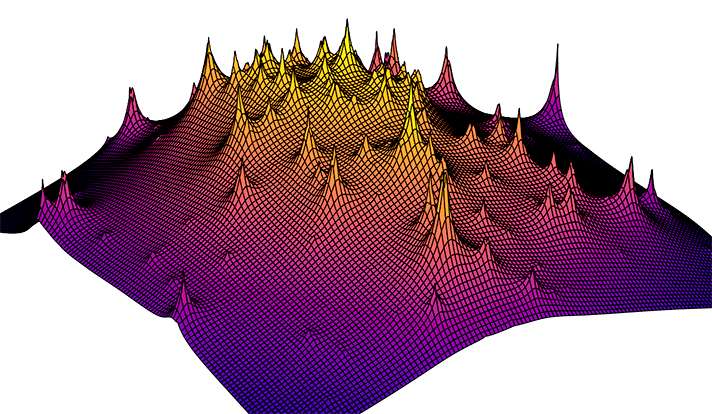Best of Last Week–New form of matter, world's oldest fossil found and a new opioid that doesn't have any side efffects

It was another good week for physics as a team at MIT announced that they had created a new form of matter—a supersolid that was crystalline and superfluid at the same time—by manipulating the motion of atoms in a Bose-Einstein condensate. Also, another team at MIT reported on how their OLYMPUS experiment shed light on the structure of protons. The seven-year experiment showed that two photons are exchanged during electron-proton interactions. And a team at Yale put dark matter on the map—by creating one of the highest resolution maps of dark matter to date.
It was also a good week for computer technology development as a pair of researchers from Columbia University and the New York Genome Center showed that it was possible to store a computer operating system and a short movie on DNA, possibly paving the way for an extremely small storage medium. And a team at The University of Manchester showed that it was possible to create a new super-fast form of computer that 'grows as it computes'—a nondeterministic universal Turing machine.
In other news, an international team of researchers announced that the world's oldest fossil had been unearthed—tubes and filaments formed by bacteria dated back 3,770 million years that had been encased in layers of quartz. Also, the lithium-ion battery inventor introduced new technology for fast-charging, noncombustible batteries. John Goodenough and his team believe the new cells could lead to faster-charging and longer-lasting rechargeable batteries that are also safer. And a team at the University of Alabama conducted a study that showed a link between the microbiome in the gut and Parkinson's disease. Also, a team led by researchers at Purdue University found evidence disproving the tropical 'thermostat' theory which suggested that global warming could breach the limits for life in the tropics.
And finally, if you are one of the millions of people who have worried about taking an opioid to relieve pain due to an injury, help may be on the way as a team with the Free University of Berlin and Zuse-Institut Berlin developed a new type of opioid that targets pain areas directly, avoiding negative side effects such as addiction, constipation and respiratory problems in rats. If the new opioid works as well in humans it could mark a true breakthrough in pain mitigation and management.
© 2017 Phys.org